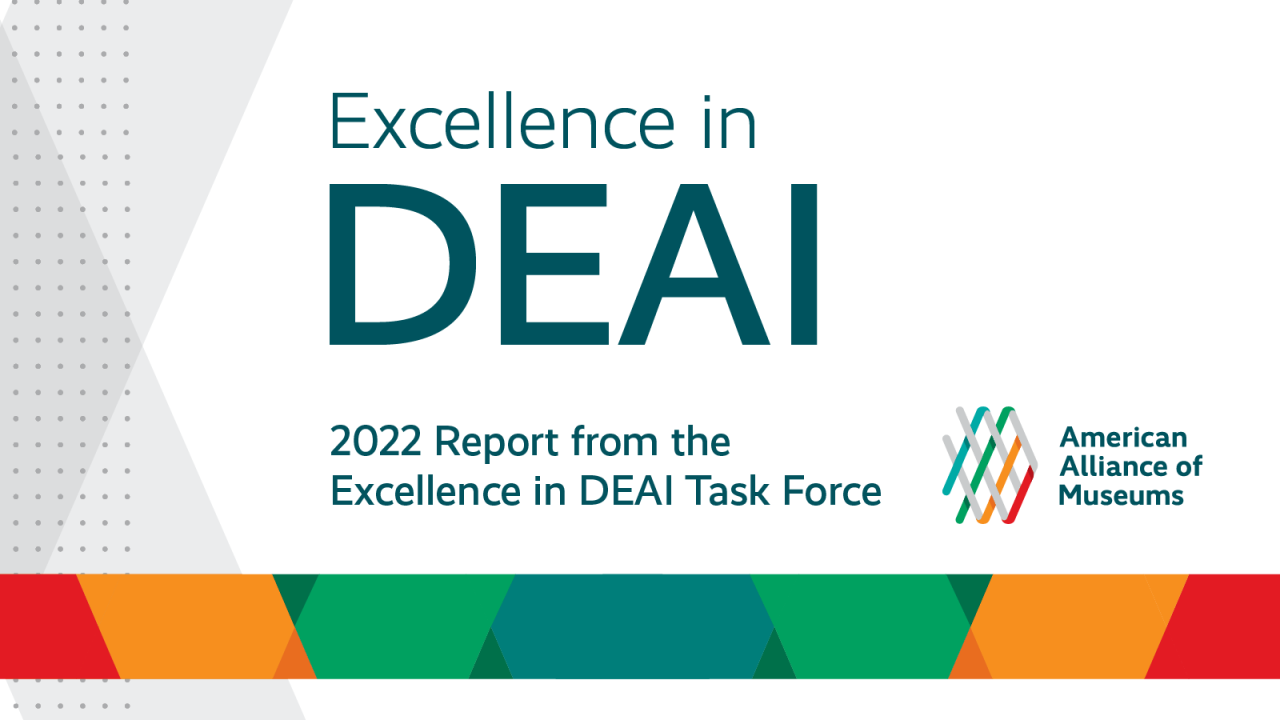
The Excellence in DEAI Report includes four Core Concepts, and overarching themes of excellence in diversity, equity, accessibility, and inclusion (DEAI). Each Core Concept includes Key Indicators, and tactical practices indicative of progress in each Core Concept. These primers serve as introductions to each Core Concept to help you spur conversation and action that advances excellence in DEAI at your museum.
Navigate to:
Excellence in DEAI Report
Core Concept: DEAI is the responsibility of the entire organization
Core Concept: DEAI is an ongoing journey without a fixed endpoint
Core Concept: DEAI demands an ongoing commitment of resources.
Core Concept:
DEAI work must be measured and assessed.
The current system in which we operate and live is one that allocates resources and opportunities unequally, creating disparities within and outside of our institutions. Pursuing and ultimately achieving equity within our museums requires deliberate attention to internal metrics tied to recruitment, hiring, compensation, promotion, and retention.
For museums to be truly equitable institutions, they will require a constant, collective effort toward positive and lasting change—and each museum will need data to measure progress. Existing data points to the fact that identity-based disparities drive inequity within our museums and society. Our DEAI work needs to focus on actively mitigating and eventually eliminating identity-based disparities by dismantling oppressive systems and developing practices, processes, systems, and cultures that support everyone.
Key indicators indicative of progress in this core concept are:
- Define the museum’s equity goals as the elimination of identity-based disparities.
- Measure progress by disaggregating data by identity over time.
Reports
- Awake to Woke to Work: Building a Race Equity Culture (1)
- Nonprofit Diversity Efforts: Current Practices and the Role of Foundations (2)
- Being Black in Corporate America: An Intersectional Exploration (2)
DEAI Tools
- Race Equity Cycle Pulse Check (2)
- Museum As Site for Social Action (MASS Action) Pre-Work: Preparing for the Journey—Readiness Assessment (1)
- Arts & Equity Toolkit (1)
Summary
Data can be used in myriad ways; by disaggregating data by identity and viewing it through a lens of equity and justice, we can help orient interpretations and possible intervention points. Within your institution, museum data should inform hiring practices, compensation, retention, staff engagement, opportunities for development, and more. Data, paired with engaging with and being responsive to the communities your museum serves, can help to adjust programming and education to keep pace with your communities’ changing needs and is critical to fulfilling your museum’s mission and DEAI goals.
Museum DEAI work should be focused on creating conditions where one’s identity has no influence on how one fares in society. In pursuing that goal, we should aim to break down identity-based disparities both within our institutions and the communities we serve.
Read more on this Core Concept and find additional resources in the Excellence in DEAI Report.








